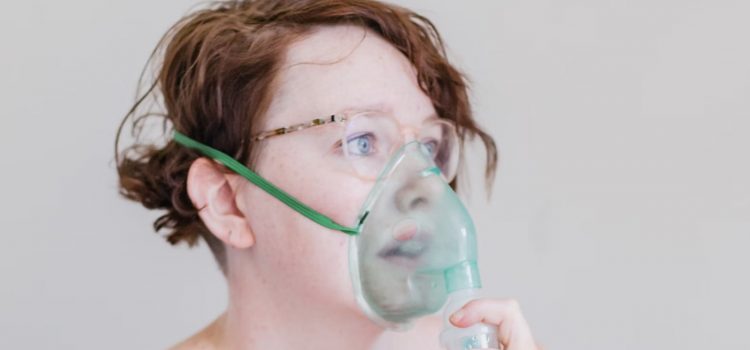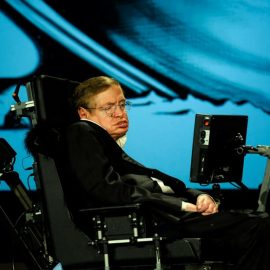

This article is an excerpt from the Shortform book guide to "The Oxygen Advantage" by Patrick McKeown. Shortform has the world's best summaries and analyses of books you should be reading.
Like this article? Sign up for a free trial here.
What are the symptoms of heavy breathing? How can breathing too much cause weight gain and mental fatigue?
Breathing too much degrades your health in many ways, including decreasing your tolerance to carbon dioxide and reducing the oxygenation of your muscles and organs. In The Oxygen Advantage, Patrick McKeown discusses a few of the adverse symptoms you may experience.
Below we’ll take a look at the symptoms that could cause great harm to your mind and body.
Symptom #1: Greater Anxiety and Stress
McKeown argues that one of the symptoms of heavy breathing is that it makes you feel more anxious and stressed because it triggers your body’s fight-or-flight response. Our bodies normally breathe heavily in response to danger; so when you breathe excessively, your body assumes that there’s a threat nearby, making you feel perpetually stressed.
(Shortform note: McKeown’s assertion that heavy breathing makes you feel more anxious and stressed aligns with the James-Lange theory of emotion, which states that the physiological sensations in our bodies determine what emotions we feel. Although some research has poked holes in this theory by showing that physiological responses aren’t necessary to generate emotions, other studies indicate that it’s accurate at least to some extent. For instance, one study found that when people forcibly make emotional facial expressions, physiological signs of those emotions appear in their bodies.)
Symptom #2: Weight Gain
According to McKeown, breathing too much causes you to gain weight. A lower tolerance to carbon dioxide means that it takes less physical exertion for you to lose your breath and become exhausted. This makes it more difficult to exercise, which makes it harder to lose or maintain your weight.
(Shortform note: Some may argue that McKeown’s theory here doesn’t hold up, as some research shows that exercise doesn’t significantly increase weight loss. Although exercising burns calories, that number is only a tiny fraction of your overall calorie expenditure, resulting in a minimal net impact. However, other experts note that a sedentary lifestyle can hamper your well-being in many ways unrelated to body weight, including increasing your risk of heart disease, dementia, and depression. If excessive breathing prevents you from exercising, you may incur these risks.)
On the other hand, McKeown states that when you breathe less and your internal organs get more oxygen, they digest food more efficiently, which naturally reduces your appetite and helps you avoid overeating.
(Shortform note: Although McKeown focuses on the power of breathing to suppress appetite in the long term, some studies have shown that slow breathing exercises can reduce cravings for food within just a few minutes. This likely results from a more immediate effect on the body than the improved digestion McKeown describes—although the specific mechanism at work is currently unknown.)
Symptom #3: Increased Mental Fatigue
We’ve discussed how excessive breathing gives less oxygen to your muscles and organs, and McKeown specifically notes that this includes the brain. Because heavy breathing deprives your brain of oxygen, you feel tired and think slower. Training yourself to breathe less can improve your alertness and mental acuity.
(Shortform note: It’s possible that reduced oxygen to the brain has even more severe adverse effects on the brain than McKeown acknowledges. Researchers have documented a link between decreased neural blood flow (which results in decreased oxygen flow) and chronic diseases that cause cognitive impairment, including Alzheimer’s disease.)
Symptom #4: Constricted Breathing
Lower levels of carbon dioxide in the blood cause the airways in your chest and throat to tighten, which causes shortness of breath in moderate cases and asthma in severe ones. McKeown asserts that low blood CO2 from excessive breathing is the primary cause of asthma.
(Shortform note: People who suffer from constricted breathing often use medication delivered via an inhaler to mitigate shortness of breath. Different medications work either in the short term by relaxing muscles in the throat to immediately widen the airways for a short time, or in the long term by permanently reducing inflammation in the throat when taken regularly. However, according to McKeown’s theory, both of these types of medication are treating the surface-level symptoms rather than the root cause of breathing problems—excessive breathing.)
Symptom #5: Constricted Blood Vessels
Finally, breathing too much causes your blood vessels to narrow, reducing blood flow and making it more difficult to get oxygen to the different parts of your body. These constricted blood vessels also increase your risk of cardiovascular issues like heart failure.
(Shortform note: McKeown doesn’t specify why breathing too much causes blood vessels to narrow, reducing oxygen flow and endangering your cardiovascular health. Some experts suggest that the constriction of blood vessels is a side effect of one of your body’s survival mechanisms: managing blood flow in response to low-oxygen environments. Excessive carbon dioxide in the blood signals that there’s less oxygen available than usual. To maintain function in the brain and other important parts of the body, certain blood vessels widen to increase blood flow. However, this biological mechanism also works in reverse: When there’s less carbon dioxide in the blood than normal, blood vessels narrow.)

———End of Preview———
Like what you just read? Read the rest of the world's best book summary and analysis of Patrick McKeown's "The Oxygen Advantage" at Shortform.
Here's what you'll find in our full The Oxygen Advantage summary:
- How proper breathing can help you lose weight, sleep better, and more
- How modern living conditions cause people to breathe too much
- Training exercises to help you breathe less and build CO2 tolerance






